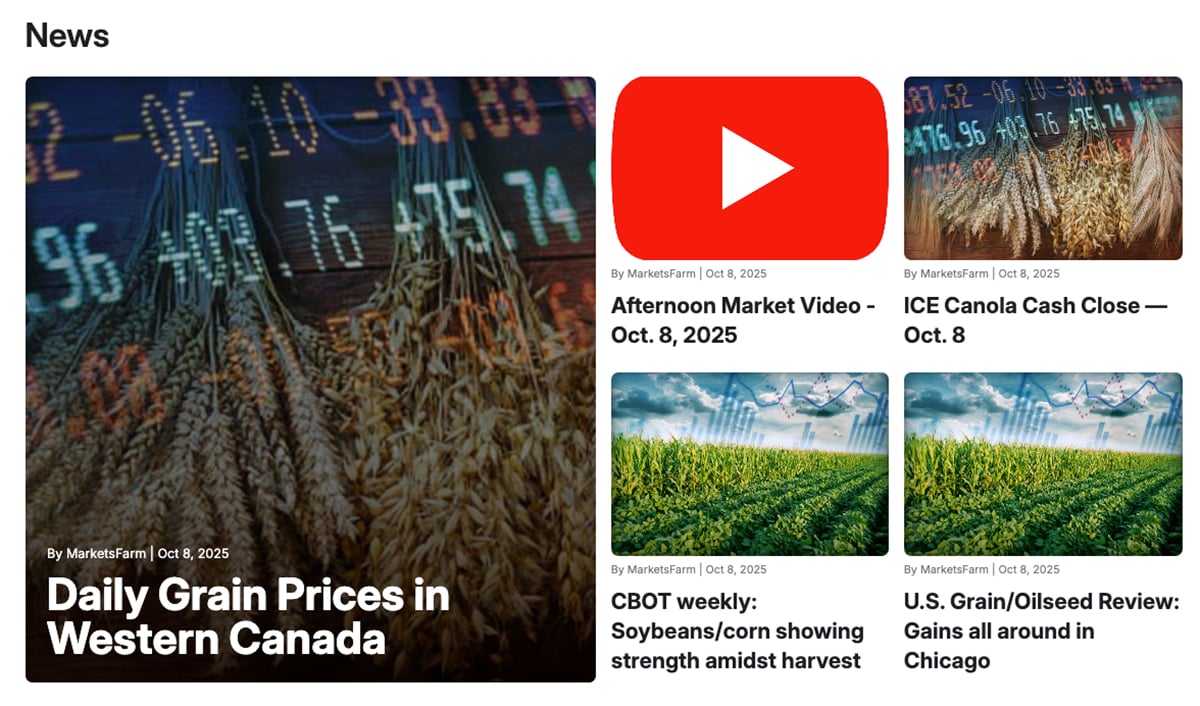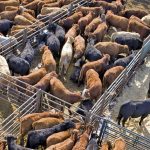Cattle prices fall
Fed cattle average prices continued to drift lower, falling $1-$2 per hundredweight last week, said Canfax. Some feedlots opted to pass cattle at the lower bids.
Canfax said packers appear comfortable with required kill and American buyers don’t need Canadian cattle.
Weights are moving higher. Steers gained another nine pounds last week and are 22 lb. heavier than the same week last year.
Discounts will start to rise on more cattle hitting the heavyweight category.
Alberta prices July 13 were steers $87.50-$89.50 per cwt. with one package to $90.50, flat rail $144.75-$147.55 and heifers $89.85 with one package to $91.25, flat rail $148.30.
Read Also

VIDEO: Catch up with the Western Producer Markets Desk
The Western Producer Markets Desk provides daily updates on agricultural markets, with recent video commentary including looks into canola, wheat, cattle and feed grains.
Beef sales and movement are considered good for the time of year.
Montreal wholesale prices are unchanged while the Calgary market is following the direction of lower cash cattle prices with packers quoting handyweight steers at $142-$156 per cwt. with heavy carcasses at $137-$140.
A short supply of cows kept prices steady, touching $70 per cwt. in some cases.
Southern parts of Alberta could see more cows coming to market soon because of dry pastures and no water, Canfax said.
Most D1,2 cows traded from $62-$68 with top sales quoted to $74.
Feeder cattle prices were steady although there was a slightly softer demand for some yearling cattle.
Good quality cattle are being picked up quickly by eager buyers.
Volumes were light, with only 10,000 head reported sold this week. Canfax expects volumes will remain light for the next few weeks.
In the drought area of southern Alberta, cattle may come to the ring earlier.
In stock cow trade, bred cows ranged from $700-$1,400 with bred heifers from $800-$1,000 (very light test). Cow-calf pairs sold from $1,000-$1,750.
Hog prices rise
A lower-than-expected U.S. hog slaughter two weeks ago and stronger packer competition resulted in higher hog prices early in the week.
However, wholesale pork prices dropped as the week progressed and packers responded by lowering bids.
Iowa-southern Minnesota hog prices (at plant, 51-52 percent lean, live equivalent) decreased from a mean of $51.78 (U.S.) per cwt. on July10 to $50.35 by July 14, down 52 cents from the previous week.
Despite prices falling from day to day, the week’s average hog price was about 0.6 percent above the previous week’s average.
Canadian average hog prices for the week also rose slightly.
The George Morris Centre’s Canadian Pork Market Review this week said Canadian packers are losing money because they can’t pressure pork prices up in step with this year’s higher hog prices.
Even operating at minimum capacity, the big new plants are turning out adequate pork supply.
There is a good supply of competing meats and retailers have doubts about consumers willingness to pay more for pork at the meat counter.
















